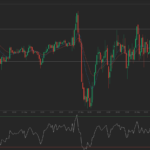Friday’s trade saw AUD/USD within the range of 0.7336-0.7446. The pair closed at 0.7442, soaring 1.24% on a daily basis. It has been the 12th gain in the past 21 trading days, a fifth consecutive one and also the sharpest one since January 21st, when the pair rose 1.32%. In weekly terms, AUD/USD added 4.38% to its value during the current week, while marking its fifth gain in the past nine weeks and also the steepest one in at least two years. The pair has advanced 4.14% so far during the current month, following a 0.80% surge in February.
On Monday (March 7th) AUD/USD trading may be influenced by the following macroeconomic reports as listed below.
Fundamentals
Australia
AIG Performance of Construction Index
At 22:30 GMT on Sunday (March 6th) the Australian Industry Group (AIG) is expected to announce the results from its survey on short-term and intermediate-term conditions in the sector of construction during February. Surveyed companies answer questions associated with production, employment, prices, supplier deliveries, inventories and new orders. The seasonally adjusted Performance of Construction Index (PCI) came in at a reading of 46.3 in January, or the lowest since February 2015, when a reading of 43.9 was reported. In January apartment building in Australia went back into negative territory, while commercial construction dropped at the steepest rate in 3.5 years. On the other hand, house building marked a second consecutive month of growth. Values below the key level of 50.0 are indicative of predominant pessimism (lower activity). An improvement in the value of this indicator would provide a limited support to the Australian dollar.
ANZ Job Advertisements
At 0:30 GMT on Monday (March 7th) the Australia and New Zealand Banking Group (ANZ) will publish data regarding the number of job advertisements in Australia in February. It encompasses advertisements in the major metropolitan newspapers and on the internet sites. The corresponding index, based on a survey by the ANZ, rose 1.0% to 156 969 advertisements in January compared to December. It has been the sharpest monthly increase since November 2015, when total advertisements were 1.3% more.
This indicator is used for projecting growth in employment in Australia, as it reflects labor market conditions in the future. An increase in the number of jobs would have a limited bullish effect on the Australian dollar, while a decrease would have the opposite effect.
United States
Change in Consumer Lending
The money amounts, borrowed by consumers in the United States probably increased by USD 16.50 billion in January, according to market expectations, following a surge by USD 21.27 billion in December, or the largest increase since September 2015. Consumer lending in December was mostly supported by non-revolving credit (auto and student loans), which rose by USD 15.43 billion. In addition, revolving credit (credit cards mostly), grew by USD 5.84 billion in December.
Given the current state of the economy, a higher-than-expected amount borrowed is usually considered as dollar positive, as it implies a potential increase in consumer spending and accelerated growth, respectively. The Board of Governors of the Federal Reserve is to release the official numbers at 20:00 GMT.
Daily and Weekly Pivot Levels
By employing the traditional calculation method, the Monday pivot levels for AUD/USD are presented as follows:
Central Pivot Point – 0.7408
R1 – 0.7480
R2 – 0.7518
R3 – 0.7590
S1 – 0.7370
S2 – 0.7298
S3 – 0.7260
By using the traditional method of calculation again, the weekly pivot levels for AUD/USD are presented as follows:
Central Pivot Point – 0.7331
R1 – 0.7557
R2 – 0.7672
R3 – 0.7898
S1 – 0.7216
S2 – 0.6990
S3 – 0.6875





